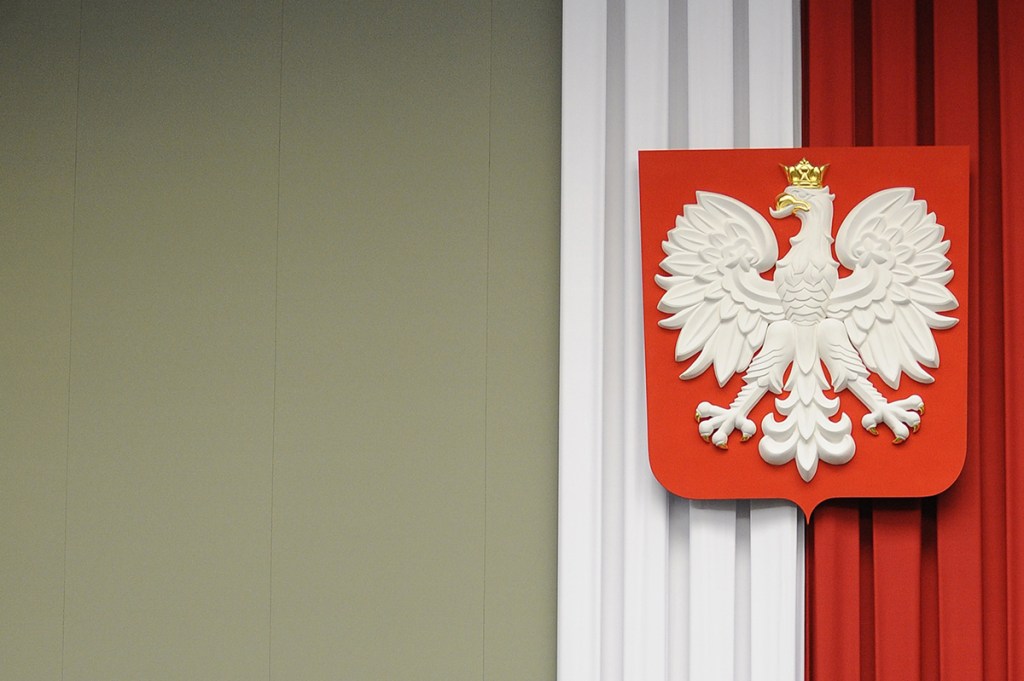Poland was the largest state in Europe for over two centuries. It was a multi-ethnic commonwealth, a refuge for Jews, a bulwark of the counter-reformation with religious liberty and an elected monarchy. Jan III Sobieski, King of the Republic of Poland, reversed the millennium-long expansion of Islam at the gates of Vienna in 1683. If Rome was the heart of the faith, Poland was Christendom’s spear. In the 20th century, Józef Piłsudski prevented the Bolsheviks from exporting the Russian Revolution to the West. And John Paul II drove a stake through the heart of the USSR. The Poles do not believe that they need any lessons about freedom or sacrifice from the European Union.
Yet the EU is pursuing Poland for its alleged attack on democracy. Brussels, founded as an economic union, has now become a ‘community of values’ — these are not the values cherished by the Polish government in what is still a Catholic country. For the last six years, Poland has been ruled by Law and Justice. Since its foundation in 2001, the party has shifted from a centrist Christian Democrat position to a more nationalist and socially conservative one.
Although Poland’s constitution bans ‘Nazism, fascism and communism’ from its politics, collaborators with the former communist regime were not, as in the neighboring Czech Republic, excluded from public office. The idea that Marxists still hold key positions in the establishment has long gnawed at most conservative Poles. Many see elements of Marxism in the new LGBT ideology and in the EU, one of its principal instruments of power in the Old World. Supporters of the government suspect that the old Marxists have propagated themselves in the courts and that a purge is necessary. Structures were created to enact this purge, which the EU found unacceptable.
But Poland’s government has blinked, at least for now. The conflict threatened to lead her out of the EU and into the arms of Russia. She is, like at other points in her history, caught between Moscow and Berlin. The EU was always much less likely to concede because, if they had, it was unclear how Brussels’s legal order could have survived.
For many Polish conservatives, it is now a straight-out culture war. In their minds, whatever the many failings of Law and Justice, the EU cannot be allowed to perpetuate a fifth column and strike down Poland’s constitutional law. It may be that the government really is threatening the separation of powers, they reason, but that doesn’t mean the judges are not the enemy within. Other conservatives fear that the cause of Catholicism is being exploited by a crooked and incompetent cabal while a whole generation is being alienated from the Church.
Law and Justice’s record is unimpressive. Inflation is terrible, the COVID lockdown has been draconian and the deputy prime minister Jarosław Kaczyński caused outrage when he ignored COVID rules to visit his mother’s grave. Another deputy prime minister, Jacek Sasin, wasted $18 million on a botched presidential election. TVN, a television channel unenthusiastic about the government, is struggling to have its broadcasting license renewed. But the idea of the party losing power has come to seem increasingly apocalyptic to many conservative Catholics.
Those hostile to the judicial reforms are skeptical of the alleged anti-communist motivation. Instead, they perceive a general desire to subordinate the judiciary to the executive. According to the EU, the methods suggested ‘threatened the rule of law’.
One element of the opposition is the ‘old patriots’ who have a deep commitment to Poland’s civil, cultural and religious traditions. They find themselves in the position of many a gloomy moral conservative throughout the West. They feel they are shackled to an unsatisfactory ‘conservative’ party, one that either promises, at best, a delay in the march of woke — or is made up of a bunch of kleptocrats trading on fears of the new liberalism to remain in office and feather the nest (of course, the two critical interpretations are not mutually exclusive). The other element of the opposition consists of rootless liberals who are well aware of the culture warriors concealed within the EU’s ministrations and are waiting to greet the liberators with garlands and refreshments.
The Polish government seems to have stepped back for now, scrapping elements of their proposed judicial reforms. But it is not unknown for the EU to push its members too far. If that does prove to be the case, surely absorption into a new anti-western bloc involving Putin’s ‘imperfect democracy’ cannot be the future? Putin may play at being the pious Orthodox Christian, but the same cannot be said for Beijing, which may end up calling the shots. There are plenty of Poles who cherish their country’s traditions and who want neither to be absorbed into western cultural nihilism nor to allow Law and Justice to turn their country into a Ruritanian kleptocracy. What are they to do?
Sympathy is predicated on understanding. And Polish is not an easy language. Comparatively few non-Slavs speak or understand it. But Poles are good at learning other people’s languages. They know what we are talking about while we are woefully ignorant of their national conversations.
Brits should take more interest in Poland. It is surely in Britain’s interests to ensure that there is a safe landing zone for such countries outside the EU — if only to strengthen their hands within it. If the Polish government hadn’t had to back down the UK might have found its own position relatively enhanced over Northern Ireland. The question is not whether you support Law and Justice’s specific reforms but whether you support the idea of national self-determination. It is perfectly reasonable to reject the former while taking Poland’s side in its battle with Brussels.
As with the UK’s, the medieval origins of Polish liberty irritates western continental Europeans — it undermines the idea that the French Revolution was necessary for ‘freedom’. In the crucial weeks during the Battle of Britain, Polish pilots made the difference, and many more Polish servicemen gave their lives for British freedom during the war. Yet to Britain’s eternal shame, in 1945 it recognized the communist puppet government and refused to allow proper representation of Poland in its victory parade. Once again Poland is fighting Britain’s battles for it and Brits are too complacent to recognize that fact. Poland’s quest for its own kind of democracy has more in common with the British civic tradition than Brits realize, and it deserves more sympathy than it receives.
This article was originally published on The Spectator’s UK website.


















